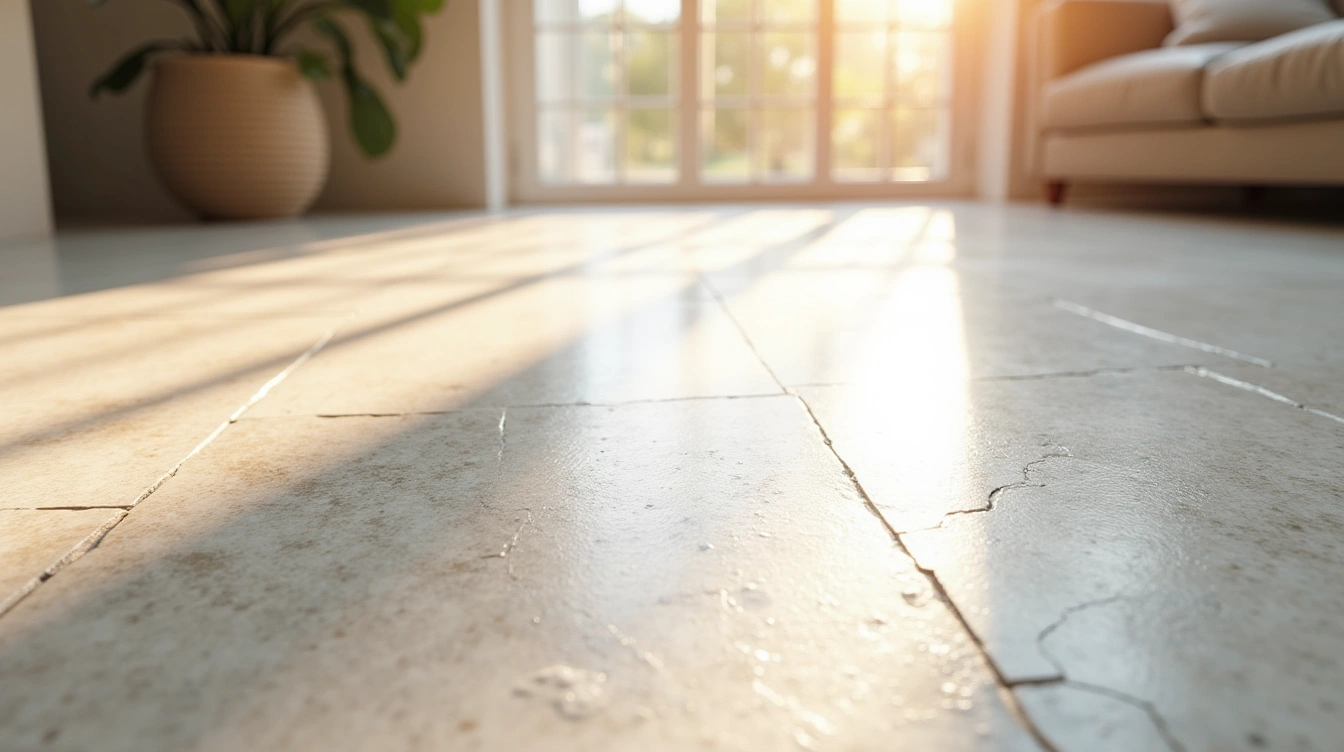Revitalize your stone floors: expert cleaning services await

Stone floors add timeless elegance but demand careful upkeep to preserve their beauty. Expert cleaning services specialize in restoring and protecting diverse stone surfaces, tackling stains, scratches, and wear with proven techniques. Relying on experienced professionals ensures tailored care that extends your floor’s life, keeps its shine, and prevents costly damage — making expert intervention a smart investment for lasting stone floor vitality.
Effective Techniques for Cleaning Natural and Artificial Stone Floors
When it comes to maintaining diverse surfaces such as natural and artificial stone floors, applying tailored cleaning methods is essential to preserve their visual appeal and structural integrity. Surrey Stone Floor Cleaning emphasizes that understanding the specific needs of each stone type guides effective care strategies.
Also to see : What Is the Impact of AI on Ethical Decision-Making in Business?
Natural stone surfaces, including limestone, sandstone, or marble, typically possess porous qualities that make them susceptible to staining and damage. Therefore, gentle, pH-neutral cleaners are recommended to dissolve dirt without degrading the material. For instance, for a limestone or marble floor in a kitchen, using a stone-specific neutral cleaner prevents etching or discoloration. Conversely, artificial or engineered stones like quartz or slate are generally more resistant, yet require suitable care to avoid scratching or dulling their finish.
Using inappropriate cleaning products or techniques can cause permanent harm. Avoid acidic or alkali-heavy cleaners, which can erode mineral content or degrade surface sealants. Common mistakes include excessive scrubbing with abrasive pads or neglecting to rinse thoroughly, leaving residues that attract dirt or cause surface dullness over time.
Additional reading : Transform your space with stylish banquette seating options
The handshake between expert knowledge and proper equipment is vital. For intensive deep cleaning, employing a stone floor cleaning machine designed for gentle yet effective removal of ingrained grime ensures minimal damage. Regular maintenance involves gentle sweeping or dusting and periodic use of eco-friendly, pH-neutral products like Faber Neutral Cleaner or Faber Floor Cleaner to uphold the natural luster.
By understanding these key principles, property owners can extend the lifespan and beauty of their floors. For practical purposes, investing in professional services such as those showcased by Surrey Stone Floor Cleaning guarantees specialized care, customized solutions, and expert advice on optimal cleaning routines.
Professional and DIY Approaches to Stone Floor Maintenance
Precision matters most when weighing professional stone floor care against do-it-yourself approaches. Use of the Stanford Question Answering Dataset (SQuAD) equation clarifies the balance: maximize shared, correct actions (tp), while avoiding incorrect or unnecessary ones (fp) or missed opportunities (fn). Approaching natural stone floor maintenance this way ensures both thorough cleaning and protection while minimizing risks.
DIY Cleaning Techniques for Stone Surfaces
Safe, effective do-it-yourself stone floor cleaning starts with careful dusting and sweeping to prevent scratches on stone floors. Use only dust mops or microfibre flat mops, avoiding abrasive brooms which can leave permanent marks. For regular upkeep, pH-neutral cleaners—like Faber Neutral Cleaner—are recommended, diluted appropriately based on the product instructions or the level of dirt. Never use acidic or highly alkaline chemicals, as they can etch and damage surfaces, especially marble and limestone.
Home remedies for stone surface stain removal, such as baking soda poultices, can sometimes address organic stains but are less reliable than commercial options like Faber Deep Degreaser. For most stains and ingrained dirt, applying the degreaser, agitating gently with a white pad, letting it dwell (but not dry), and rinsing well yields superior outcomes. Resealing after deeper cleans with effective stone floor polishing and sealing products is highly encouraged for ongoing protection.
When and Why to Hire Professional Stone Floor Restoration Services
Selecting professional stone floor cleaning services enhances the results achievable with natural stone floor maintenance, especially for deeply embedded grime, old sealants, or complex restoration needs. Professionals utilize advanced cleaning equipment and carefully chosen, eco-friendly stone floor cleaners to safely extract dirt from crevices and pores, including grout lines. Polishing and sealing through expert methods restore dull stone floors and offer a renewed appearance and barrier against water and stains.
Situations calling for expertise include heavy staining, old or neglected floors, and following significant events like renovation. Specialist knowledge helps avoid common mistakes in stone floor care (for example, improper use of steam cleaning for stone floors or the wrong cleaning agents) which can permanently damage delicate stones. The longevity and beauty of your stone surfaces improve dramatically when professional stone floor care is well timed—a core benefit for both residential and commercial spaces.
Do’s and Don’ts for Best Results
- Stick to mild, stone-safe cleaning techniques for routine maintenance.
- Reseal high-traffic floors every few years, using leading products like SRP Impregnator Premium.
- Don’t attempt deep stain or mineral removal on your own if initial home remedies fail. Instead, turn to professional restoration.
- Regularly dust and sweep to avoid abrasive particles that cause scratches on stone floors.
These combined approaches allow anyone to maintain and protect stone floors with confidence, ensuring natural beauty and durability for decades.
Revitalize Your Stone Floors: Expert Cleaning Services Await
Deep cleaning is the cornerstone of effective natural stone floor maintenance. The best professional stone floor care starts by addressing layers of ingrained dirt—especially in heavy-traffic spaces—using advanced stone floor deep cleaning methods. The SQuAD approach begins by identifying the best way to remove stubborn contaminants: apply a concentrated, non-acidic solution specifically designed for stone surface stain removal, like Floorseal Stone Floor Cleaner or Faber Deep Degreaser. Agitate manually with a white emulsifying pad or use a suitable stone floor cleaning machine. For grout lines and hard-to-reach crevices, focus on targeted stone tile grout cleaning tips.
Let the cleaner dwell for up to 15 minutes, ensuring it remains wet to maximize cleaning power. Then, thoroughly rinse with clean water—either via mop or with extraction equipment—removing all residues and preventing residue re-deposition. This technique is at the heart of professional stone floor cleaning services, whether tackling kitchen stone floors or large commercial sites.
Eco-friendly stone floor cleaners are now a preferred choice for many homeowners aiming for residential stone floor cleaning advice that aligns with health and environmental concerns. Quality products are low-odour, child- and pet-safe once dry, thanks to water-based formulations free from harsh acids. These options meet the needs of increasingly eco-conscious stone floor cleaning practices.
For optimal results, restoring dull stone floors involves careful post-cleaning steps. Once dry, sealing stone floors for protection is essential to prolong their fresh look and resist future stains. Impregnating sealers are among the best products for stone floor upkeep because they bond beneath the surface, maintaining breathability and natural appearance.
Maintaining a regular schedule is key: stone floor dusting and sweeping with microfiber tools helps to prevent scratches on stone floors. Professional stone floor cleaning services recommend combining manual stone floor scrubbing techniques for tough spots with routine machine cleaning to tackle large areas efficiently. Choose equipment and products tailored to the type of stone, whether you’re working with limestone, granite, or sandstone floor cleaning tips.
Avoiding damage during stone floor cleaning calls for gentle agitation and choosing the right cleaner. For example, acidic agents should never be used on acid-sensitive stones like marble or travertine. Always clarify which stone floor cleaning equipment overview matches your specific need and seek local stone floor cleaning specialists for consultation if in doubt.
After restoration, follow practical aftercare routines. Stone floor drying and aftercare, such as leaving freshly cleaned surfaces to dry thoroughly before foot traffic resumes, preserves the finish and prevents slip hazards. For ongoing affordable stone floor maintenance, schedule dusting two to three times a week and plan thorough professional cleans seasonally, especially in high-traffic or hospitality environments.
For those managing extensive floors, automated stone floor cleaning devices now enhance efficiency. Still, regular human oversight and expert intervention remain fundamental for historic or irregular stone surfaces. Ultimately, revitalizing your stone floors can yield not only aesthetic rewards but also long-term durability and easier daily upkeep. By implementing proven cleaning techniques for stone surfaces, sealing diligently, and staying informed about innovative techniques for stone surface care, you set the stage for floors that truly impress.
